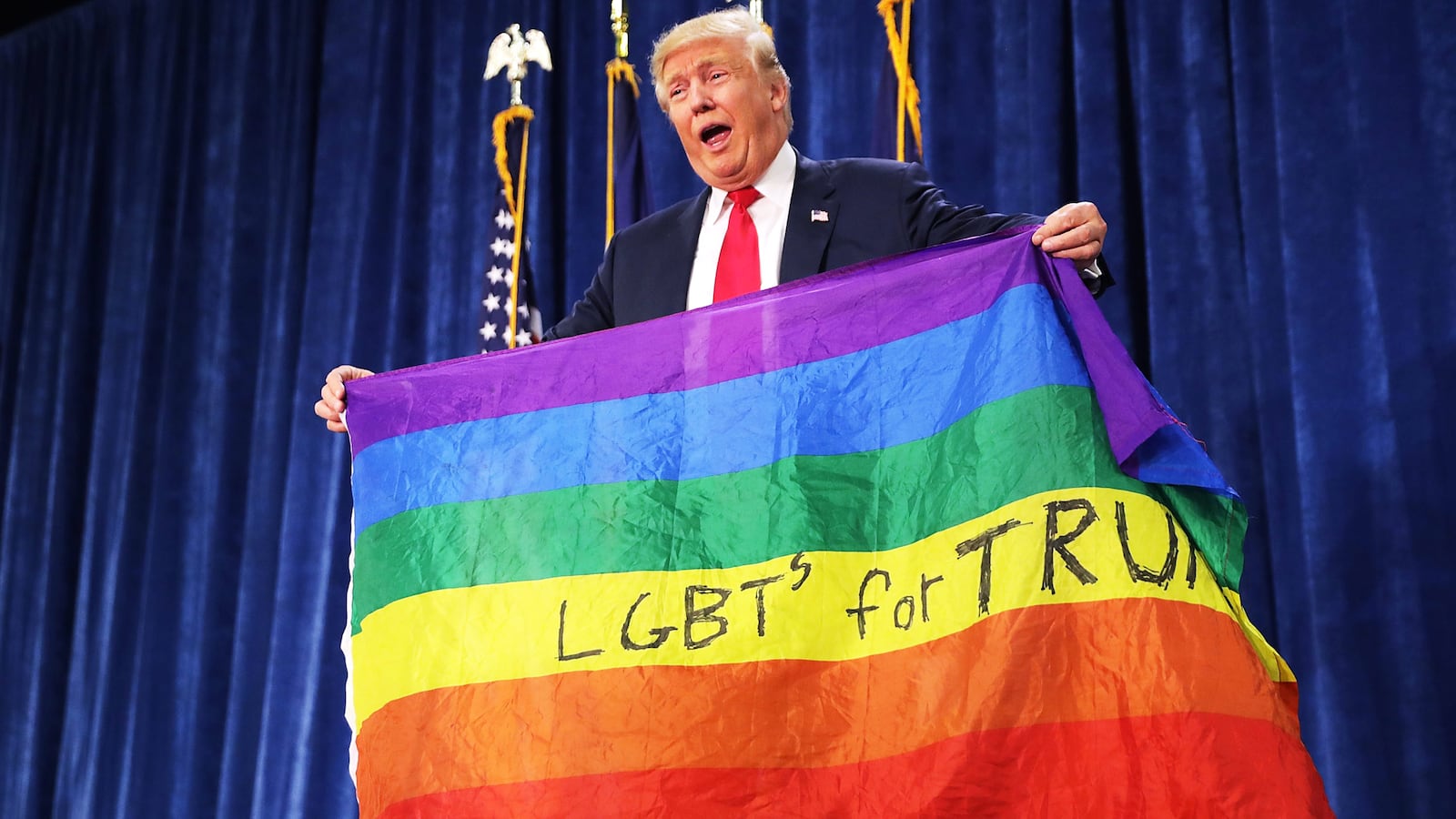The Trump administration’s potential new rule on gender—first reported by The New York Times on Sunday—would take transgender rights even further into the Dark Ages than they already are.
“Sex means a person’s status as male or female based on immutable biological traits identifiable by or before birth,” says the proposed draft language in a memo leaked from the Department of Health and Human Services. “The sex listed on a person’s birth certificate, as originally issued, shall constitute definitive proof a person’s sex unless rebutted by reliable genetic evidence.”
It’s not clear when, or if, that language will be implemented in HHS or across other agencies. But coming from an administration that has tried to remove transgender troops from the military and rolled back Obama-era restroom guidance for transgender students, the concretizing of this definition would come as no shock.
This new draft language represents the clearest attempt yet from the Trump administration to pretend as though transgender people simply don’t exist.
It is also wrong—almost to a word. In defining sex as “male or female,” it ignores the existence of intersex people who are born with anatomy that cannot be readily assigned into either category, and of non-binary people, who are only now starting to gain legal recognition in a handful of jurisdictions in the United States.
And in defining sex as “immutable,” the proposed definition flies in the face of well-established medical treatments that can alter a transgender person’s hormone levels, alter their sex characteristics, and reconfigure their genitalia. A transgender woman, for example, can have hormone levels within what is considered a normal female range, with breasts and a vagina.
But the definition’s second half reveals what it actually is: A brazenly political attempt to eradicate transgender people from the law. By potentially defining sex according to “a person’s birth certificate, as originally issued,” the Trump administration would be matching the strictest of the many anti-LGBT “bathroom bills” that have cropped up in state legislatures over the last few years.
The word “originally” would be necessary because 18 states and D.C.—in line with the recommendations of medical experts—allow transgender people to update their birth certificates without undergoing costly sex reassignment surgery. In fact, only three states—Kansas, Tennessee, and Ohio—completely bar transgender people from updating their birth certificates to reflect their transitions.
But by far the most puzzling aspect of this proposed language is that it would defy how other federal and state agencies handle the approximately 1.4 million transgender adults living in the United States.
The State Department, for example, still allows transgender people to change the sex listed on American passports without proof of sex reassignment surgery—a policy first implemented in 2010 under then-Secretary of State Hillary Clinton. Despite recent alarming changes to the language on the State Department website, that policy remains firmly in place.
The Social Security Administration also acknowledges that transgender people can change sex. States also generally allow transgender people to change the sex listed on their driver’s licenses, often without surgery.
That would mean we could end up in a situation in which a transgender man with an “M” on his U.S. passport, on his driver’s license, and even on his reissued birth certificate would be considered a woman by the HHS, if the proposed language goes into effect. Not only would that defy decades worth of progress toward full legal recognition of transgender people, it would open up a Pandora’s Box of potential legal challenges for an administration that is already facing several LGBT rights groups in court.
But the point of this proposed language—in all likelihood—is not to be accurate, nor to develop a practical policy. The point is to denigrate transgender people.
Guided by ideology rather than science or legal precedent, the Trump administration has devised a potential new definition of sex that could cause a world of hurt in the short term for the many transgender Americans who are already hurting.
Worldwide, it’s clear where transgender rights are headed in the long term: Major professional medical associations—including the American Medical Association—support transgender people, and have made it clear that treatments like hormone replacement therapy and sex reassignment surgery can be medically necessary.
More progressive jurisdictions are moving toward a system by which transgender people can update their identity documents with very little gatekeeping. Courts—including several federal courts in the United States—are recognizing transgender people as a real class of people, legally speaking, entitled to the same rights as their non-transgender peers.
This is a tide that can only be delayed, not reversed. The Trump administration can try to throw a wrench in the gears of progress with this new language, but there are no words that can make transgender people go away.







